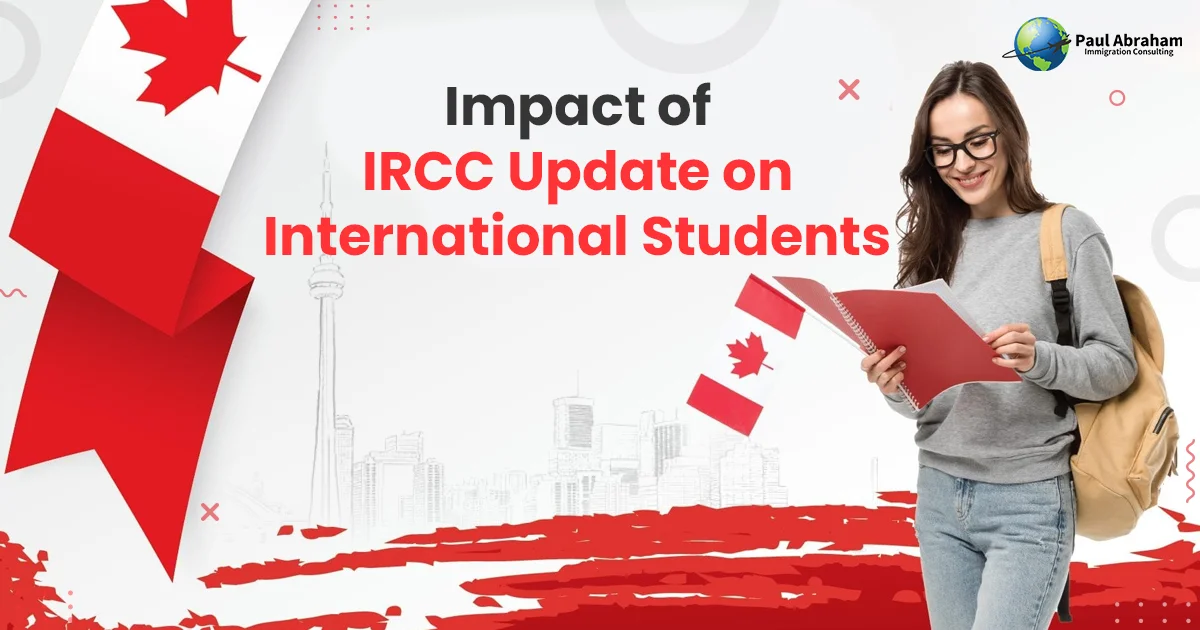What's the impact of the latest IRCC updates for international students?

Last Updated On : April 19 , 2024
Are you tired of browsing through multiple Canadian immigration sites to find out how the latest update from Canadian Minister Marc Miller will affect your study permit? Our immigration experts have analysed the official announcement from various Canadian government sources and have listed the major impacts of these updates on your Canada study visa process.
We have already discussed what were the updates from Minister Marc Miller for international students on this announcement page.
As an impact of these updates, each study permit requires a verification letter, masters graduate work permit extension and PGWP work permit rules are updated.
Do the International Student Visa Updates Impact Your Application?
On January 22, 2024, Immigration, Refugees and Citizenship Canada (IRCC) Minister Marc Miller unveiled a set of measures aimed at stabilising the flow of international students over the next two years. The Government of Canada has placed a cap on applications for international student visas.
In 2024, the limit of approved study permits is about 360,000, down 35% from last year.
-
Provincial and Territorial Procedures Update
The provinces and territories are expected to establish their issuance processes by March 31, 2024, consistent with the new approach to allocations.
-
Verification Letter Update
Each study permit application will now require a verification letter from the concerned region, which aims to simplify the allotment process.
-
Extended Work Permit for Master Graduates
Master's graduates now benefit from an extended 3-year work permit, allowing a more adequate period to gain valuable work experience and facilitate a possible transition to permanent residence.
-
Changes in Post Graduation Work Permit Eligibility
Effective September 1, 2024, students in the course licensing regime will no longer qualify for the Post Graduation Work Permit (PGWP).
Why did IRCC Make Updates For International Students?
- Minister Miller and Prime Minister Trudeau have highlighted integrity challenges in the study visa application system.
- Some institutions may have increased student intake to raise revenue, leading to potential misuse of the system.
- The rapid growth in student numbers has placed a strain on essential services like housing and healthcare for students.
These measures are directed at stabilising the flow of international student permit applications to Canada, protecting applicants from exploitation, and promoting sustainable population growth through the study permit application process.
Future Perspective of These Updates for International Students
These are the areas where these changes can impact the future of International students for student permits in Canada.
- The major impact of the cap will be fewer international students entering Canada for the years 2024 to 2026. Allocation will be distributed across provinces and territories based on population.
- The recent changes to the PGWP program mean international students under curriculum licensing arrangements won't be eligible for work permits until the government analyses the two-year cap results.
- Starting in 2024, spouses of students enrolled in Master's and PhD programs will get priority access to Open Work Permits in Canada. This means it'll be easier for them to find work and contribute to the economy while their partner studies.
Is Canada a Desirable Choice for Overseas Students?
As of 2022, Canada boasted a diverse population of over eight million permanent residents, representing approx. 20% of the total populace. Moreover, the nation admitted 963,400 individuals with work permits, accommodated over 800,000 international students, and supported 24,935 refugee claimants.
Ontario continues to attract students and immigrants, with British Columbia and Alberta closely following suit as preferred destinations within the provinces.
Conclusion
The recent changes in Canadian immigration policies reflect a concerted effort to balance student intake, safeguard international students, and promote sustainable growth.IRCC is making these updates intending to enhance the overall experience for international students considering Canada as their educational destination.
